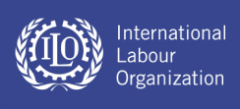|
From:TheBahamasWeekly.com Caribbean News  A new report by ILO and UNICEF highlights the continued progress in the fight against child labour in the region in recent years, but given the current context of the COVID-19 crisis, both organizations call for immediate measures to avoid a greater setback. A new report by ILO and UNICEF highlights the continued progress in the fight against child labour in the region in recent years, but given the current context of the COVID-19 crisis, both organizations call for immediate measures to avoid a greater setback.The new ILO-UNICEF report (2021) estimates that 8.2 million children between the ages of 5-17 years of age are engaged in child labour in Latin America and the Caribbean. Most of these children are male adolescents, with 33% being girls. Child labour is present in both rural and urban areas, with about 48.7% being in the agricultural sector. Just under 50% of those engaged in child labour are in family work. Over 50 percent of the children are engaged in hazardous work, meaning it is dangerous to their health, education and wellbeing. Child labour is a sad reality for too many children in this region. “The combination of job losses, rising poverty and closed schools is a perfect storm for the proliferation of child labour. Leaving school and entering prematurely in the labour market reduces the chances to get better jobs in the future perpetuating the poverty trap,” said Vinícius Pinheiro, ILO Regional Director for Latin America and the Caribbean. “It is true that there has been progress in the last two decades in the region, but the numbers are still too high, and social and economic crisis caused by the pandemic could cause a dramatic reversal if we don’t act soon”. “Social dialogue and international cooperation are essential for a response that includes social protection measures, more and better education, strengthening labour inspection and decent work for parents”. Despite the decline of the child labour in the Latin America and Caribbean region by 2.3 million from 2016 and 2020, the pandemic, is expected to reverse this positive trend. With family job and income losses the pandemic increased the number of children in income-poor households and families may turn to child labour as a coping mechanism. According to ILO and ECLAC, the practice could rise between 1-3 percentage points, meaning around 100,000 and 326,000 more children. “As many schools are still closed and impoverished families in lockdown has lost incomes for months and months, we are seen more Latin American and Caribbean children dropping out of school and entering into child labour. Those more at risk are those in families who lost their income and livelihoods” warned Jean Gough, UNICEF Regional Director for Latin America and the Caribbean. ”Latin America and the Caribbean once hoped to be the first region in the world to eradicate child labour by 2025. The pandemic has made this goal more and more elusive. More children across the region are likely to fall into child labour in the coming months unless families with children received critical assistance quickly”. Child labour harms children physically and mentally. Child labour compromises children’s education, restricting their rights and limiting their future opportunities. leading to vicious inter-generational cycles of poverty and child labour. On this World Day to End Child Labour (12th June), the International Labour Organization and UNICEF are calling for increased spending on public services such as social protection, universal access to free and good quality education and safe reopening of schools, decent work for adults and young people of legal working age, a renewed focus on child labour in agriculture, laws to protect children better, effective enforcement and comprehensive child protection systems.
|